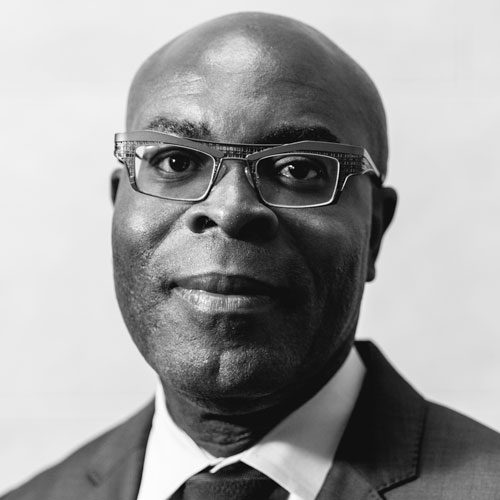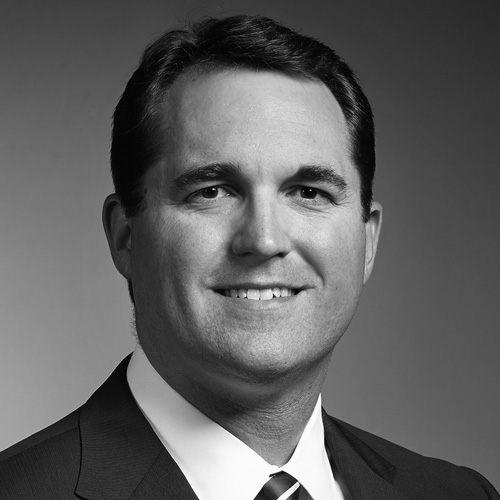Jeff Piccolomini wears a lot of hats. As both president and head of finance at Henkel North America, he leads in many different capacities—but most important is when those two positions overlap.
Ask Your CFO These Questions, By Jeff Piccolomini
1. Do we have the financial resources to execute our strategy? Cash is always king.
2. Where are our best opportunities to increase income and cash flow within our business model? The CFO should be a top internal critic.
3. What are top M&A opportunities, and what are our processes to ensure we capitalize on them? The CFO often manages the M&A process.
4. If we need unplanned funding, do we know sources, and how quickly can we tap into them? Unexpected opportunities may arise.
5. What is the talent pipeline within finance, and who are your top two potential successors? Financial talent is a company success factor and a primary responsibility.
6. How do we compare against top competitors using financial measurements? Easily measuring ourselves helps fight for financial resources in capital markets.
7. Do internal controls and processes safeguard assets and produce timely financial reports sufficient to manage the business? Basic, but it’s a core CFO responsibility.
8. Are financial statements prepared with accepted accounting principles, and do you see areas of concern? It adds a risk element for the senior management team.
9. How does our finance function compare to other finance functions of similar companies? It ensures the finance group operates efficiently and effectively.
Henkel Corporation manufactures branded household and personal care goods in two categories: laundry and home care, and beauty care. On the industrial side, it is also the largest adhesives company in the world. Brand names include Dial, Right Guard, Soft Scrub, and Loctite—the latter is where Piccolomini started off heading up the finance division before it was acquired by German company Henkel. After a series of similar acquisitions, the company morphed into a very different-looking global corporation. And it’s up to Piccolomini to bring these disparate companies together into one. His dual positions put him in a unique position to do so.“I like to think that also being the finance guy means I have an intimate knowledge of not only what each of the businesses are trying to achieve, but of how well they’re doing,” Piccolomini says.
“As I meet with the senior leaders of different businesses, it helps to put everything in the context of their individual challenges,” he says. “I usually have first-hand knowledge if somebody’s latest marketing program is going well or not, and why.”
When Piccolomini has a suggestion, he’s able to put the numbers and context behind his idea. “If I were in a different function than finance, I don’t know if I’d have the same appreciation,” he says.
His role as head of finance seems standard on paper: he oversees the treasury, banks, taxation, accounting, and all the rest. But as president, things get a little more complicated. Henkel worldwide is a conglomerate, and each of the three major business lines manage their own affairs globally, by country and region. But the back office belongs to Piccolomini, where he handles legal activities across all three. He also calls himself “a governance watchdog in a suit,” as it’s his responsibility to ensure that safety, health, environmental, and governance concerns are all operating according to policy.
Piccolomini was offered the head of finance role in 2002 after his company was bought out by Henkel. It was his job to take a series of acquisitions—including his own—and move all of them into one, unified company. He centralized IT platforms and finance, and then essentially moved what was a high-cost operating business to a world-class level. He considers this his biggest accomplishment in his early days at Henkel. But as a conglomerate, acting as one company is still a huge part of his mission.
“We’re trying to promote the idea of one Henkel in North America,” Piccolomini says. “As a result of all these different acquisitions, we have a lot of different business cultures. [We’re] getting everybody to think of themselves not as any of the dozen or so different companies, but as Henkel.”
Now, with the global business operating more smoothly, Piccolomini can clearly see the value of finance operating hand in hand with each business. “My main focus in the finance area is making sure we are delivering good value for what we do and being a proactive partner with the businesses and helping them with their challenges,” Piccolomini says. “The biggest contribution I think I’m making right now on the CFO side is partnering with the businesses and helping them solve their problems using our financial expertise,” he says.
Partnering with several different business units means Piccolomini’s leadership skills are put to good use. But he doesn’t fall back on an authoritative voice. Instead he takes a more personable approach as a leader.
“I tend to be a fairly casual guy. I very much like personal interaction,” Piccolomini says. “My style is to set overall direction, to set out goals for the coming month, year, or next three years, and then make sure I have good people around me to figure out the details of how we achieve those goals.”
Piccolomini started a weekly column called “Ask Jeff,” where any employee can ask him just about anything, and he’ll do his best to respond. He understands that to lead a global company made up of disparate business units, communication is key, and this is one way to get closer to a unified global company. “I do try to answer in a way that brings everybody together even though we’re scattered across about fifty different locations,” he says.
To see this leadership style more clearly, his relationship with the team in Manila, Philippines, is a perfect example. Henkel successfully moved transactional activity to Manila, in addition to its US finance department. Piccolomini is in charge of managing that group, which also reports to a separate organization. Clearly, it can get complicated. But Piccolomini says the way he works with Manila is a microcosm of how he likes to work in general: collaborating and achieving common objectives.
“We set up our working relationship with Manila as an extension of our activities right here in North America,” Piccolomini says. “We have always worked with them in a way that they could be just right down the hall. We work as one team . . . avoiding a them-versus-us approach.”
But this work as part of a subsidiary and a conglomerate isn’t always easy. “The good part of [Henkel] is you get to work with good people around the globe with pretty much everything you do, and you get to have a voice in most major things that go on,” Piccolomini says. “The downside to that is you usually have to get a lot of people to agree with almost anything you want to achieve.”
Piccolomini sees his role in this area as a mentor of sorts, coaching new hires as well as his employees on how to navigate the at-times confusing waters of Henkel’s global businesses. Those complications aren’t going to slow down any time soon—and that’s a good thing. Henkel is in the business of acquiring companies, and it is Piccolomini’s duty to ensure it runs as one, smooth business.
“From my vantage point, one of Henkel’s core competencies is making acquisitions and integrating acquisitions,” Piccolomini says. He calls Henkel an “acquisitive” company, however, not one that acquires companies purely for the bottom line. Each acquisition is different, he explains, and so integration will be different as well, especially whether he deems them “offensive” or “defensive,” cost-saving acquisitions.
“Some companies we’ve bought—Bergquist comes to mind—we’re really looking on the offensive side,” Piccolomini says. “We want to bring them into the Henkel family, but we don’t want to disrupt the strengths they’re bringing. We want to learn about them more than just integrate them.”
And it works. Learning about companies, particularly the people within them—their motivations, goals, and experiences—is just what Piccolomini is all about.

